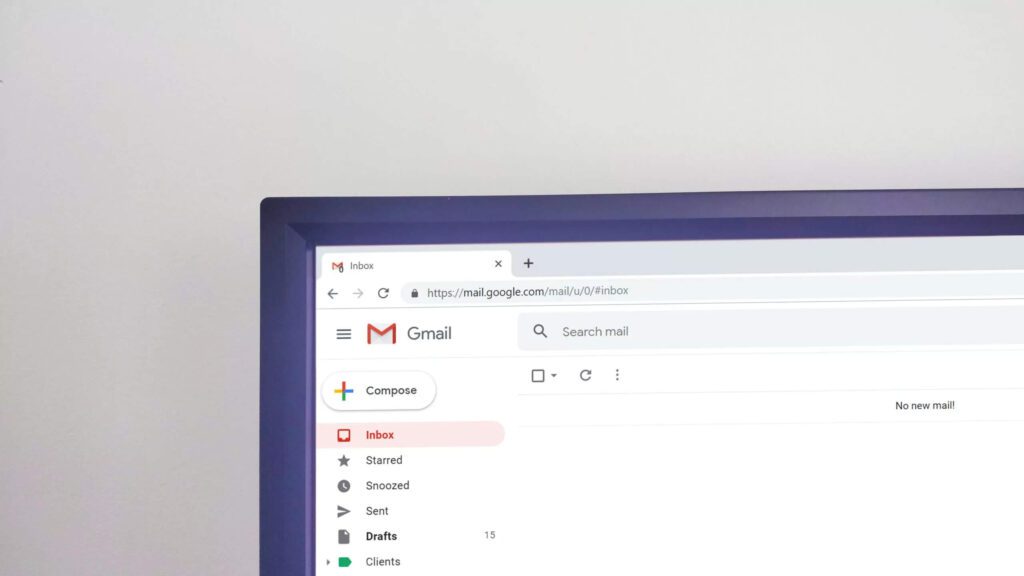
Lesleyan loves working with Whitman because of the wide range of quality professional assignments offered. In her spare time Lesleyan enjoys traveling the United States and abroad, reading and spending time with family and friends.


Lesleyan loves working with Whitman because of the wide range of quality professional assignments offered. In her spare time Lesleyan enjoys traveling the United States and abroad, reading and spending time with family and friends.

Doris continues to work for Whitman and especially enjoys working special events assignments. She enjoys crafts and is an avid reader. Additionally, every chance they get, she and her husband spend time in North Carolina and traveling throughout the United States, especially in Florida and Virginia Beach.
Most professionals who work full-time office jobs spend the majority of their week sitting at a desk or in a cubicle. For this reason, it’s important to have an organized work space that encourages good habits and helps you maintain a positive attitude.
This can be even more important with the rise of remote and hybrid work. The ideal work environment can be difficult to achieve if your “home office” is a corner of your dining table. Regardless of where you work, creating a clean, organized work space benefits both your productivity and your mood. Here are some of our favorite tips and tricks for creating your ideal work environment.
A disorganized mess on your desk can lead your thoughts to also be disorganized. Having an organized workspace can help you keep your mind organized.
You never know when you might have to jot down a few notes, so make sure you always have a pen and piece of paper readily available.
Remind yourself why you are working so hard. Posting a picture of your dream vacation location or some other goal that you are working towards.
This won’t apply to everyone, but if you work on-site this is always a good rule of thumb. You never know when the new boss might swing by your desk or when a client might come visit, so always have your business cards the ready.
There are lots of different ways to stay inspired at work. For some folks, achieving work goals can be inspiring. For others, it could be pictures of a favorite place, an inspirational quote or message that you keep in your work space to help you maintain your positive attitude. If you don’t always work in the same place, be sure to personalize your desktop background so you can stay inspired wherever you’re working that day.
While a stress ball is okay to have in your desk drawer, try to avoid having too many little toys or other distractions around. Even the smallest of distractions can end up sucking up too much of your time. Another distraction to be wary of is your cell phone, it’s all too easy to check a notification, and end up scrolling. To keep yourself organized within your work space, consider putting notifications on do not disturb so you won’t be tempted during your workday.
Put up a few pictures of your friends, family, or pets. Smiling faces will be guaranteed to boost your mood during a long day in the office.
Keeping flowers or a small plant on your desk can help to connect you with nature while you are cooped up in your office all day. Also there are studies showing that plants can help boost your mood by releasing oxygen and can absorb toxins in the air. What better way to achieve an ideal work environment than to actually feel happier at work!
We hope these tips help you set up your ideal work environment whether you’re in an office cubicle, a coworking space or your home office!
Not all job seekers are unemployed. In fact, a large number of people are job searching while employed. These professionals are looking to make a change from their current positions. Job seekers who are looking for a job while employed must effectively balance their current role while searching for their new role. Here are some tips to keep in mind:

This may seem like a no-brainer, but be sure you keep your current job separate from your job hunt. Your current employer is paying you to work for them, not to job hunt. While employed, do all of your applying and looking for a job on your own time.
This doesn’t just apply to browsing job boards, but also be sure not to use your work phone, email or computer when corresponding with potential employers. Only use your personal contact information when applying for jobs or updating your resume. Within most companies, you are not the only person with access to your work email and call records.
If your employer discovers you’ve been searching for a job while employed and on the clock, it’s likely to be labeled as time theft which can result in a write up or even termination. Looking for a job while employed must be done on your own time.
If you get the opportunity to interview with a new company, whether in person or on the phone, try to schedule it so that you don’t need to take a whole day off from work. It’s best practice to limit how much your job hunt interferes with your current role. That way, you can seek the job you want without tarnishing your reputation at your present place of employment.
While still employed, it is ideal to schedule interviews over your lunch break so that you don’t have to take any time off while job searching. If that is not a possibility, you should try to schedule interviews from your job search first thing in the morning or at the end of the day, so that you can either come in a little late or leave a little early, so as not to miss much work while you are looking for a job.
If you do end up accepting a job offer, make sure to give your current employer plenty of notice. Two weeks notice is the generally acceptable amount of time, but every situation is different. Oftentimes you will help to train the person moving into your job. The more time you have to do this, the more seamless the transition will be. Your current employer will value your dedication, and your new employer will see that you are a loyal employee.

Lastly, using a staffing agency like Whitman Associates can take some pressure off your job searching. Job searching while employed full time can feel like another full time job. Work smarter, and have a staffing agency like us help you with your search. With a large client pool, staffing agencies see new jobs all the time. If you’re looking for a job while employed, get started with Whitman Associates by checking out our current job listings and emailing your resume to resumes@whitmanjobs.com.
Thinking about becoming a recruiter but not sure if you’ve got what it takes? You may be wondering, how do I become a job recruiter? Recruiting can be a great field to enter. It has tons of transferable skills and lots of upside benefits. Plus, many recruiters are paid bonuses for filling positions. All in all, it’s an excellent field to enter. But many people think it requires a specific educational background or work experience. Not true! Read on to learn three tips on how to become a recruiter with no experience.

Before exploring how to become a recruiter for jobs, let’s make sure it’s the right field for you. One of the biggest factors in determining if you would be a good recruiter is your personality. While you don’t necessarily have to be an extrovert, some key personality traits are must-haves if you want to learn how to qualify for recruiter jobs in Washington, DC (or anywhere). You’ll need:
When contemplating how to become a recruiter with no experience, the next question is whether you need the right degree. Education is a tricky one, because there is no degree in recruitment. So what field should you study? Essentially, you need some education. Recruiters frequently have bachelor’s degrees in HR or management, but this is absolutely not necessary. Do you have a degree in an engineering or science field? Recruit for a tech company.
Are you wondering, how do I become a job recruiter in the education field? Look for a position at a university. Even a lawyer is qualified to be a recruiter. They could work for a law firm or governmental agency. If a field exists in which people need to be hired, then that field’s educational background would work well for recruiting. In short, if you want to know how to become a recruiter with no experience, you probably need an education — but the sky’s the limit on what that education looks like.

When researching how to get into recruiting with no experience, here are four important skill sets that every prospective recruiter must have:
The question of how to become a recruiter with no experience may seem challenging at first. However, by following the guidelines we’ve shared, it’s a fairly straightforward path. Whether you’re seeking recruiter jobs in Washington, DC or elsewhere, following these tips will help you to launch a career in recruitment.
If recruiting sounds like the career of your dreams, don’t let a lack of experience stop you from going for it. Be proactive and apply to as many organizations that you can and be persistent. Temp agencies like Whitman Associates in the Washington, D.C. area frequently post recruiting jobs. One trick in learning how to become a recruiter with no experience is to begin with temporary employment. Temp jobs are typically easier to get and are great for resume and experience building. Check the job listings regularly and apply to each relatable posting. With a little front-end effort, you can chart your own course and learn how to become a recruiter faster than you think!

You’ve got the interview of your dreams, but they only conduct online interviews. In today’s job market, it makes perfect sense. You could be interviewing for a remote position on the other side of the country, or your interview panel may be in various locations. Whatever the reason, video interviews are a standard part of the interview process, so you need to be prepared with video interview tips for remote interview questions and answers. A video interview is much different from an in-person interview. Here are six remote interview tips to make sure you show your best self online:
You can never (and we do mean never) be over-prepared for an interview. You need to make sure your equipment is ready. Check your internet connection, lighting, video and sound. Make sure you have a full battery on your phone or laptop. Be punctual when logging into a Zoom meeting. Video interview tips include practicing talking via Zoom or another online meeting platform to make yourself more comfortable with the technology. You want to make an outstanding first impression, and being late due to technological issues may negatively affect your interviewer’s perception of you.
Often overlooked in remote interview tips is having your documents ready to share. Just as you prepare for remote interview questions and answers, you should be ready to email your interviewers a copy of your resume, cover letter, references, and sample of your work. Don’t assume they will all have these things sitting before them. Preparation is one of the best ways to express your passion for the role you’re interviewing for.
Additionally, think ahead of time about all possible scenarios for the interview, such as a request to share your screen. A smart remote interview tip is to keep other applications and browser windows closed so that if you have to share your screen, you’re not sharing anything personal that you don’t want your potential employer to see. Regarding remote interviews, preparation is the most essential ingredient to success.

You want to make a good impression. One way is by asking your remote interview questions and answers. Another video interview tip is that your video background and environment should reflect your professional qualities. Make sure it’s neutral and without distraction. Want one of our best job remote interview tips? Don’t use a picture of a tropical island or your dog Fluffy (no matter how cute he is!). Moreover, whatever you do, don’t use a video background. Select a neutral, clean and clutter-free space.
Don’t have that at home? Consider a study room at your local library. Just ensure the lighting is good and the area is free from distractions (this includes windows with lousy lighting or distracting actions like cars driving by). Ensure your mobile’s notifications are silenced! Nothing is more annoying than the constant beeps signaling your latest TikTok post is blowing up. Use these remote interview tips if you want to impress your interviewer.
Sure, things are more casual now than they have been in the past, but the fact is that your prospective employer has to see you as professional and trustworthy. Not only can you express this via your remote interview questions and answers, but these attributes are also directly reflected in your attire. One of the most essential video interview tips is always dress as you would for an in-person interview. While that doesn’t always mean wearing a full suit, it should mean that you’re dressed professionally and appropriately based on the job you are seeking.
Our job remote interview tips wouldn’t be complete without saying that you shouldn’t assume you will only be seen from the chest up. It can be tempting to dress more casually from the waist down, but always think your outfit will be visible to your potential employer.
Video interviews can be challenging, but this is essential in our remote interview tips. It’s hard to come across as excited and interested during remote interview questions and answers when sitting on your living room sofa. Still, you must engage your interviewer and show real excitement for the position you’re interviewing for. To do this, don’t sit back with your arms crossed. Instead, sit forward on your chair with good posture. One of our best video interview tips is smiling and demonstrating positive body language and behavior. Don’t cross your arms, and don’t be afraid to use your hand to gesture as you speak (just don’t overdo it!).

This one is tough but essential in our remote interview tips: Look directly into the camera. When you’re not looking at the camera, you’re not making eye contact. That’s a big no-no in the interview world. Always remember to look directly into the camera when answering a question. This can take some practice, especially if you’re on a computer. You can also try using a cell phone instead of an entire computer. The phone’s small screen size will make it easier to come across as having good eye contact, but be sure that it is in a stable position. Regarding remote interview tips, it’s helpful to consider how in-person interview strategies could carry over while engaging in remote interview questions and answers.
Finally, our video interview tips would not be complete with reminding you that you are an asset and that your potential employer would be lucky to have you. While you don’t want to come across as arrogant, you do want to remember that the interview process goes both ways. You should be interviewing your potential employer as much as they are interviewing you. Don’t sell yourself short — this is an underrated but essential remote interview tip. Come up with a list of your assets that make you the perfect fit for the job, and work them into the conversation as naturally as possible. And don’t forget to prepare questions to ask your interviewer as well. Potential employers appreciate someone taking the time to consider the position fully.
By following these six tips, you can make your video interview a spectacular way to show off the positive qualities you will bring to the job!
Check out our blog for more tips and tricks, from writing the perfect resume to nailing your interview. We hope these remote interview tips help you successfully secure a position!
Your resume should evolve as frequently as your career does, so you should constantly be improving and editing it while on the job hunt. To help, here are some of our top resume writing tips to keep in mind when you next update your resume.

Our top resume writing tip may seem like a no-brainer, but ALWAYS include your contact information on your resume. An email address and phone number at minimum are a must on your resume. Feel free to include the address to your LinkedIn profile if you use LinkedIn regularly. You don’t need to include your full address on your resume, but it can be helpful to list your city so that hiring managers know you are in the area. By omitting contact information when building your resume, you are inadvertently making yourself inaccessible to employers and recruiters that you want to hear back from.
In the same vein, your phone number should be on your resume, so be sure that your voicemail is set up and that you can receive messages. While you may not leave voicemails yourself, hiring managers will. When employers receive the “mailbox not set up” or “mailbox is full” this signals to them that you don’t really care if you find work or not. Also, be sure to check any message that’s left before returning the call, they may have given you information or instructions in the voicemail, by not listening to it you’re making them repeat themselves, and indicating that perhaps you don’t follow instructions.
Another tip is to send a Word document or PDF version of your resume if possible. Employers will most likely not be able to open a resume if it’s sent as a Google Doc, and Google Docs makes it super easy to download your resume in multiple different file formats. Also, don’t send a jpeg or photo of your resume, you should have an electronic copy that you can email.

Additional tips are to keep your font consistent. Don’t use more than two fonts maximum, and keep their usage consistent throughout, ie. one font for headings and another for the body. More fonts than that can be distracting and perhaps unprofessional. Additionally, it is best to write out your resume, and not to send out an Indeed or LinkedIn style prefilled resume. These inevitably have formatting issues when they are transmitting or emailed outside of those platforms. Also, this tells your potential employer that you did not spend much time on your resume.
Our last resume formatting tip is not to worry if your resume is longer than one page. The “one-page resume” rule is antiquated, if you’ve held a number of jobs, a two page resume is perfectly fine. If your resume exceeds three pages, you likely have information on there that is not relevant to the role that you are applying for, and can actually end up hiding the skills and experiences you are trying to highlight.
Along with each job title, be sure to list your months of employment along with the years. Employers want to be able to easily comprehend your work history and spot any employment gaps on your resume. If you don’t list the months, they might think you are trying to hide something, or assume a gap in your resume where there wasn’t one.
Another tip is to remember to include the company name, and location of that company, along with your job title on your resume. You might have worked for a chain, such as CVS or Starbucks, or alternatively, you could have worked for a small company in your hometown. The location provides important contextual information about your job.
With that said, it’s also critical to list the location of where you received your degree(s). Whenever you list a degree on your resume, be sure to include the name and location of the institution where you received that degree.
Looking for a job in accounting? Then you’re probably going to need QuickBooks. Whether you’re already well-versed in accounting or you’re just starting out, it makes sense to know how to use the most popular bookkeeping software. The good news is that you can learn QuickBooks bookkeeping online—without needing a specialized degree.

Before jumping into the details of how to learn QuickBooks online, it’s important to recognize why it’s advantageous to do so. The numbers tell the story: QuickBooks has 30 years of experience at the top of the industry with millions of businesses relying on the software. When you learn QuickBooks bookkeeping, you’re plugging into a massive network of accountants, small businesses, and individuals.
Demonstrating a good understanding of QuickBooks is likely both the easiest and the best way to establish yourself as a knowledgeable prospective or current accountant. On the other hand, if you’re trying to get work as an accountant, but don’t know how to use QuickBooks, your job-seeking experience may be a long road. Now that you understand why QuickBooks is important, let’s go over four principles for how to learn QuickBooks online.
The fastest way to learn QuickBooks is to use it! Explore the different functionalities of this important online tool with your own accounting needs. You can use QuickBooks to organize, prepare, and file your own personal tax returns. Especially if you do some odd jobs or freelance work on the side, you can discover many of the intuitive and useful features of QuickBooks on your own.
QuickBooks offers a free trial online, so even if you don’t plan to use it long-term for your personal accounting, you can give yourself a quick crash course. Practice makes perfect, and it’s best to jump in as soon as possible.
Another great way to learn QuickBooks is to use the resources available directly from the source. Intuit, the parent company for QuickBooks, provides a variety of help resources that are accessible for you as a prospective or active user of the software. Inuit recognizes that many people look for how to learn QuickBooks online, so they provide that service as information that is easy to find.
All QuickBooks online plans include a network of dedicated support, with expert agents that can help. QuickBooks Online for accountants includes advisory training with self-paced lessons. You’ll find plenty of help in a huge library of resources and webinars.
Intuit’s bookkeeping resources are great, but you may also find it helpful to get outside support. There are a variety of free or low-cost online tutorials available covering everything from basic onboarding to advanced nuances of QuickBooks. You can find the right fit for you with some quick Internet searches. Check out options like Udemy, Simon Sez IT, Fit Small Business, and more. You may prefer a service that walks you through step by step or one that provides you with learning you can complete on an as-needed basis at your own pace.
There are plenty of online tutorials and guides covering how to learn QuickBooks that do have a higher cost attached, which you are welcome to pursue if you find that level of support necessary. However, with so many resources available that have no or only a small cost, make sure you really need the extra layer before committing to the higher price tag.
Not everyone learns best by reading. Especially if you’re having trouble understanding a help article, you can search on YouTube to likely find an explainer. Hector Garcia and BookkeepingMaster are two of the most popular and well-recognized YouTube channel sources for this type of service.
Seeing people use QuickBooks in action is a valuable exercise for you to engage in as you learn QuickBooks bookkeeping. Watching the specific tactics used to get through a challenge will help you apply not just those strategies but also that type of thinking to your own bookkeeping practices. Soon, someone will ask you how to learn QuickBooks!

Of course, the whole reason you learn QuickBooks is to land a job. You don’t have to have Quickbooks mastered to jumpstart your work in accounting or an accounting-related field. Find temp opportunities that will get your foot in the door. Send your resume to resumes@whitmanjobs.com for the next step in your career journey.
It’s no secret that we live in the digital age. Well over half of the global population has a presence on social media, but many people believe that using social media professionally is totally separate from scrolling through your personal feed at home. For serious job seekers, though, social media for professional networking intersects with personal usage all the time.

Even when you have your personal account set to private, certain pieces of data are still viewable. This includes your profile picture, how many posts you have, and how many accounts you follow. You—and potential employers—can tell a lot from a simple search.
In an article well before the pandemic, Forbes explained that “social media is a key player in the job search process today,” and “more than a third of all employers utilize these sites in their hiring process.” We can expect percentages to be much higher now, as employers and job seekers alike have grown more used to conducting business online and using social media professionally. The application of social media for professional networking is a common, even expected, facet of the workforce.
Employers commonly browse the social media of prospective employees, evaluating character and personality. This includes aspects such as whether the job seeker:

When considering your personal and professional social media, it’s most important to still be yourself online. When you try too hard to use social media professionally, perhaps liking every post from your dream employer, you may end up coming across as inauthentic.
Posting personal updates and pictures shows off your personality, but it’s best to consider a broad audience. The “Grandma Rule” is a good principle. If you wouldn’t want your grandmother to see it, don’t post it. Even if you have separate accounts, you probably have friends and family members following your professional account, or colleagues and classmates following your personal account. It’s best to assume that your coworkers will see your posts to err on the side of safety and professionalism.
It’s called social media for a reason. It’s fun to browse on TikTok or scroll through an Instagram feed, but even these platforms aren’t just or primarily for entertainment: social media is for professional networking. While LinkedIn is traditionally associated with networking, there are so many other ways to connect with peers, past employment sources, prospective colleagues and employers, and more. Connections across various social media presences often bridge the gap between personal and professional. Now, more than ever, we discover networking opportunities through our personal social media.
Smart job seekers will maintain an active presence on social media, cultivating their participation to be both authentic and impressive. You can be the one to link others to prospective opportunities, like connecting a colleague with your own personal contacts, and see the same energy and benefit come back around to you. Through social media, you can make connections with people you would never otherwise know. There’s a potential opportunity for you to find your dream job through social media connections.
In conclusion, seeing your personal and professional social media presences as totally separate will not serve you well. Professional behavior matters everywhere. When you understand the intersection of personal and professional social media, you can use your presence on these platforms to your career advantage. Professional networking on social media is generally expected now, so don’t be afraid to try it.
If you’re ready to take your career to the next level, let Whitman Associates help you. We have contacts we would love to share with you. Simply email your resume to resumes@whitmanjobs.com to get started.

As the executive director’s assistant, Sandy maintained his busy travel schedule, managed and planned all of his scheduled meetings and coordinated every aspect of the company’s board and conference meetings with various departments within the company. The skills Sandy has learned working at SkillsUSA has prepared her for her current job with Whitman Associates, Inc. In her spare time, she enjoys walking her two dogs, small group bible studies and visiting family
in Louisiana.